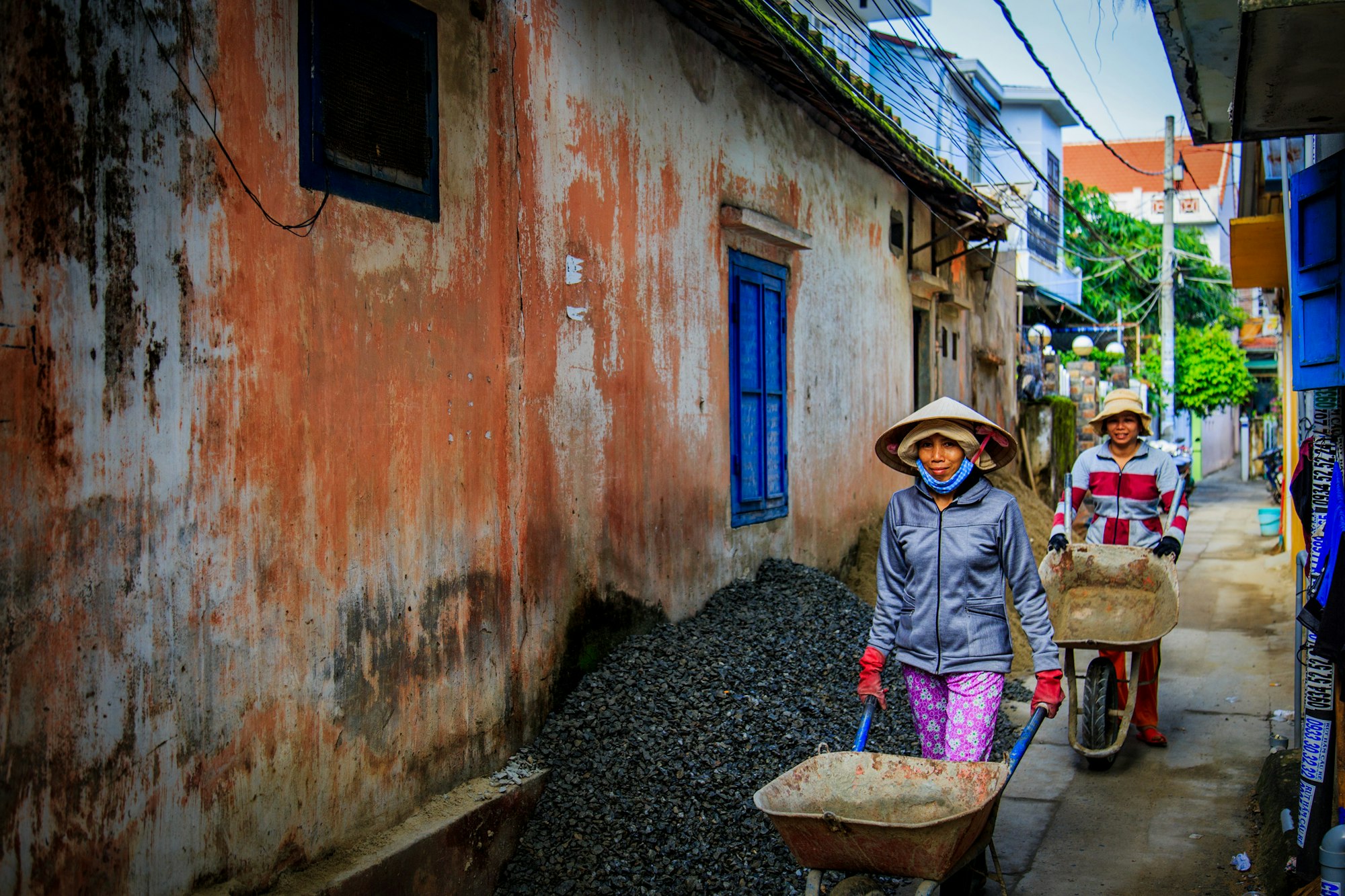
The intrinsic and deeply emotional value of physical labor, and why it just might save your life
Humans suffer from two terrible addictions (okay, LOTS of them, but stay with me here), and they are:
- The need to be right (at all costs)
- The need to feel superior
While this is going to both sound and feel overly simplistic, because it is, let me expound. First, so many of our wars, disagreements and -isms spring from these two, and in so many ways, were we to look harder at how they work in us, so many of those wars and disagreements would dissipate.
Our economy would collapse, too, because the compulsion to be prettier, stronger, younger, faster etc. etc., and most especially richer, better than all that, drives a great deal of our profit-making industries. And our religions and wars, and our religious wars, and every other damned thing.
"My daddy can beat up your daddy" to "I've got bigger boobs" drives the bulk of our economy. Folks make a lot of money when we are at war with ourselves and each other. The need to hoard money to get bigger yachts, the need to get impants to have bigger butts. Name your topic, it's competitive, even effing YOGA.
People actually purchase noble titles so that they could appear to be of a higher social class.
As if.
What on earth does this have to do with physical labor?
You might be surprised. Everything, kinda. Stay with me here.
Over the course of our (questionable) evolution, we moved from hunting, to a hunting-gathering, to a farming, to an industrial society and now to tech, where we as Western nations labor mightily to end up looking like the patrons of the space ship in the Pixar movie Wall-E. Kindly, the USA is largely already there.
To that:
In our early years, work was life, life was work, to not work (run down game, gather food, dig for roots, run from predators, build shelters) was to not last long. We are built to be athletes. All of us are, ALL bodies are built to move. When we eat crap ultra-processed food and eschew exercise to chew, we end up like our friends, above. And we are giving birth to more and more kids already predisposed to obesity, not just an accident of nature, but also our diet and habits.
But I digress. Not by much.
The compulsion to demonstrate superiority appears to be hardwired in us, hence the need to fight, push around, manage, own each other. Get more money, be skinnier, look younger. All the tributaries of our terrible need to show agency over one another also morphed over time into feeling superior over those who had to work the fields, toil and dirty their hands with labor.
Here's where we get to it, then.
To be burnt by the sun (hence the term "redneck," to denote dumb stupid ignorant farmer) and to be muscular meant one HAD to labor, which over the course of time, meant coarse. Unrefined, uneducated, and much worse. Ignorant, base.
People over the course of time wanted to separate themselves from those they considered coarse. Of course they did. Okay, sorry, I couldn't help it.
Just as an example:
The Chinese want to "look rich" by growing long nails on the last two fingers of the hand.
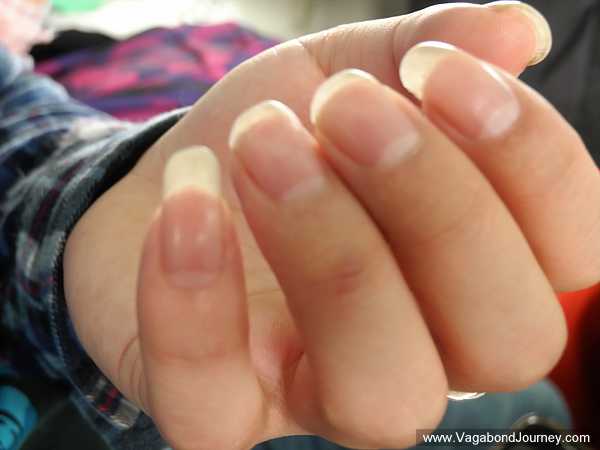
Okay, this may strike you as really silly, but then so is fashion, and all the idiot things we drape on our bodies to demonstrate how rich and superior we are, the muscles we build at the gym to go all Rock on someone else. While I am a lifetime body builder, there are very good reasons I work out, which I'll touch on in a sec here.
We use conveniences and lack of labor to prove we're rich and better than, we use toxic productivity to show superiority to those who labor in the fields, clean our toilets and pick our berries. Popular movies make terrible fun of the trades, mocking them to the point where not a whole lot of folks want to train as plumbers and HVAC folks these days.
Wonder who's going to fix the can in fifty years? All those finance majors are too busy growing their last two fingernails.
Today we use being muscular- albeit not necessarily fit, per se-to demonstrate that we have both the leisure time and discipline to sculpt ourselves into monuments. Not very fit ones, to be fair, if one only looks at the steroid users, and on top of that, a goodly number of those folks on the freakish end of the bodybuilder scale can't really use all that muscularity. There's not much to be said for such overdeveloped calves that you can't walk normally.
It is monumentally silly, actually, and besides, it's not good for us emotionally, physically, mentally.
There's a reason physical work is called good honest labor. Not only is physical labor a necessity for health, it's deeply meditative.
Here's a wonderful article which points to precisely the reason why I LOVE to go to the gym and why I love to do physical labor. I don't care if it's hauling hay, hauling wood or chopping it for my fireplace. There is great grace in effort, and tremendous dignity as well as health benefits in digging one's fingernails into the soil on which we stand.
That which isn't covered by asphalt that is.
Please see this:
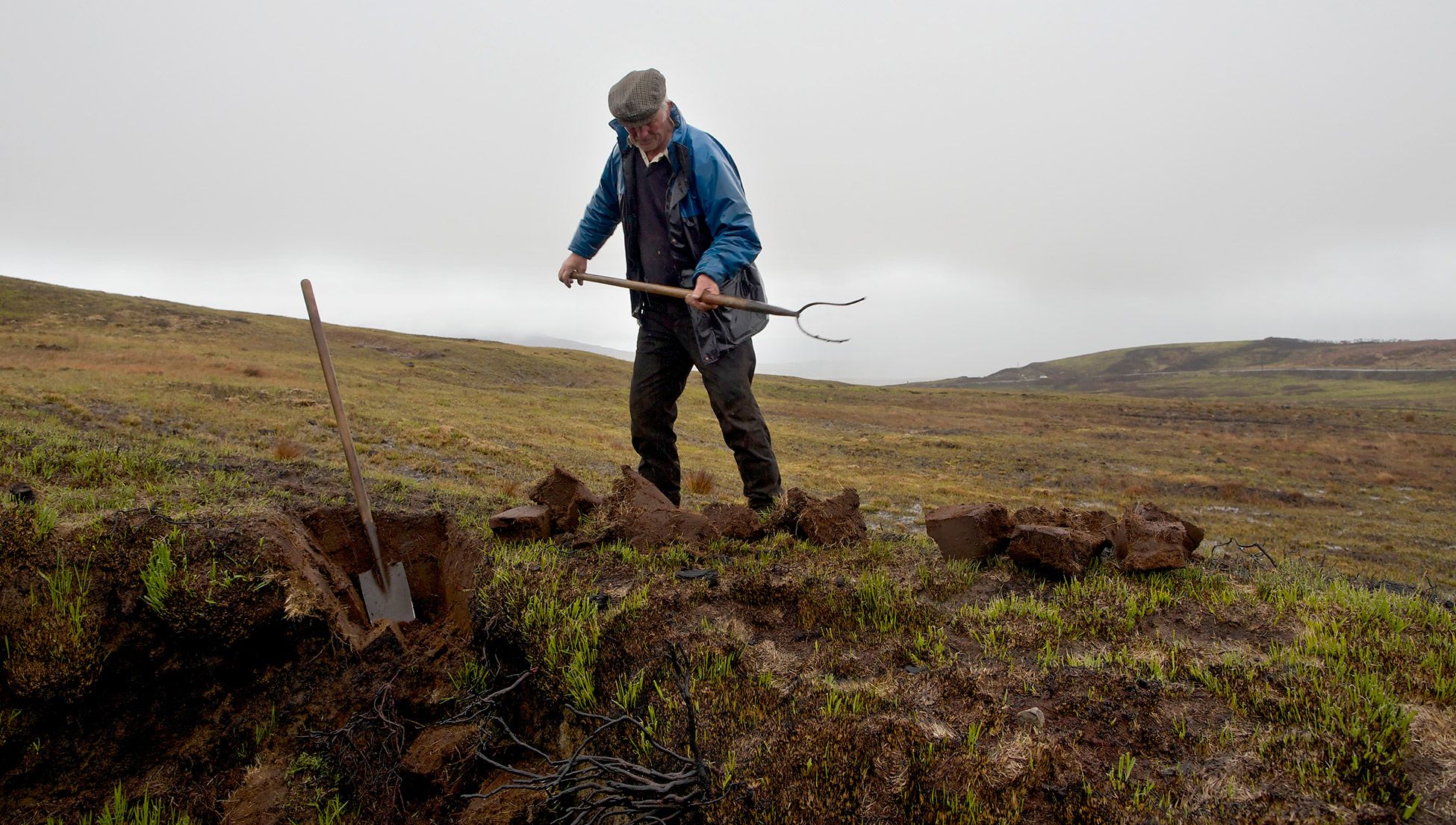
In a world where the trades are mocked, where blue collar workers are getting scarce and those who do show up can barely lift a hammer without needing to take a fifteen-minute break from exhaustion, there's something to be said about understanding work as not separated by collar colors but intertwined.
There is no reason whatsoever that you can't be a philosopher landscaper. I have one already. One day while Mike from Rising Sun was out on my deck with me, he caught me off guard (the danger of assumptions, kindly) by mentioning a number of books that I dearly love and read regularly, one of which was Mists of Avalon.
Because of our conditioning, and I am as guilty of this as anyone, all too often we make utterly unfair assumptions about people's brains, capacity, what they read or what interests them based on how dirty their fingernails are or how torn their overalls. A great many great thinkers spend their time working with their hands if for no other reason than the pleasure it gives them to utilize those parts of their brains and creativity.
It isn't because they weren't smart enough to get a "better job." Perhaps, more meaningfully, they were smart enough to find meaningful work while using both their hands and brains, which would be a fine lesson for the rest of us.
From the article:
The gulf between jobs that are considered ‘intellectual’ and ones that are deemed manual makes no sense. Simply put, in order for a society to function as it should, we need both types of profession. Without philosophers, scientists, writers and historians, we would have no culture, ideas would not advance, and we wouldn’t understand how our world works, nor our past. However, we also need people in skilled manual jobs. Without builders, plumbers, electricians, carpenters and more, we would have no running water, no working electricity, no houses to live in, nor indeed any buildings at all to philosophise in. For a society that works, both types of work are equally valuable.
Having grown up on a Southern farm, the term redneck was apropos for all the days and weeks I spent scything tall weeds, packing and hauling eggs, tossing hay and much more. My father, who worked equally hard, was a Cornell-educated intellectual. He brought my brother and me up strong, but plied us with books, which I consumed daily. The twinned exercises in physical and philosophical labor were happening quite without my understanding it. I had no clue that I was building a value set around physical labor and brain development.
We increasingly invest in devices which increase our dependence on tech vs. our brains (GPS, which reduces our skills at finding our way, and which I depend on way too much) or scooters which keep us from walking, or any number of conveniences which rob us of any semblance of athletic ability, body awareness and fitness. I'm hardly the only one to point this out.
Our society increasingly moves towards tech, and obesity as a way of life. We continue to undermine our "houses," if you will, by not investing in our kids' educations in all skills and trades and ONLY focus on those skills we imagine will make us rich (medical, legal, finance) then the houses, just as our bodies, will come tumbling down from lack of maintenance. Those are the institutions, the buildings, the infrastructures which require highly-skilled labor.
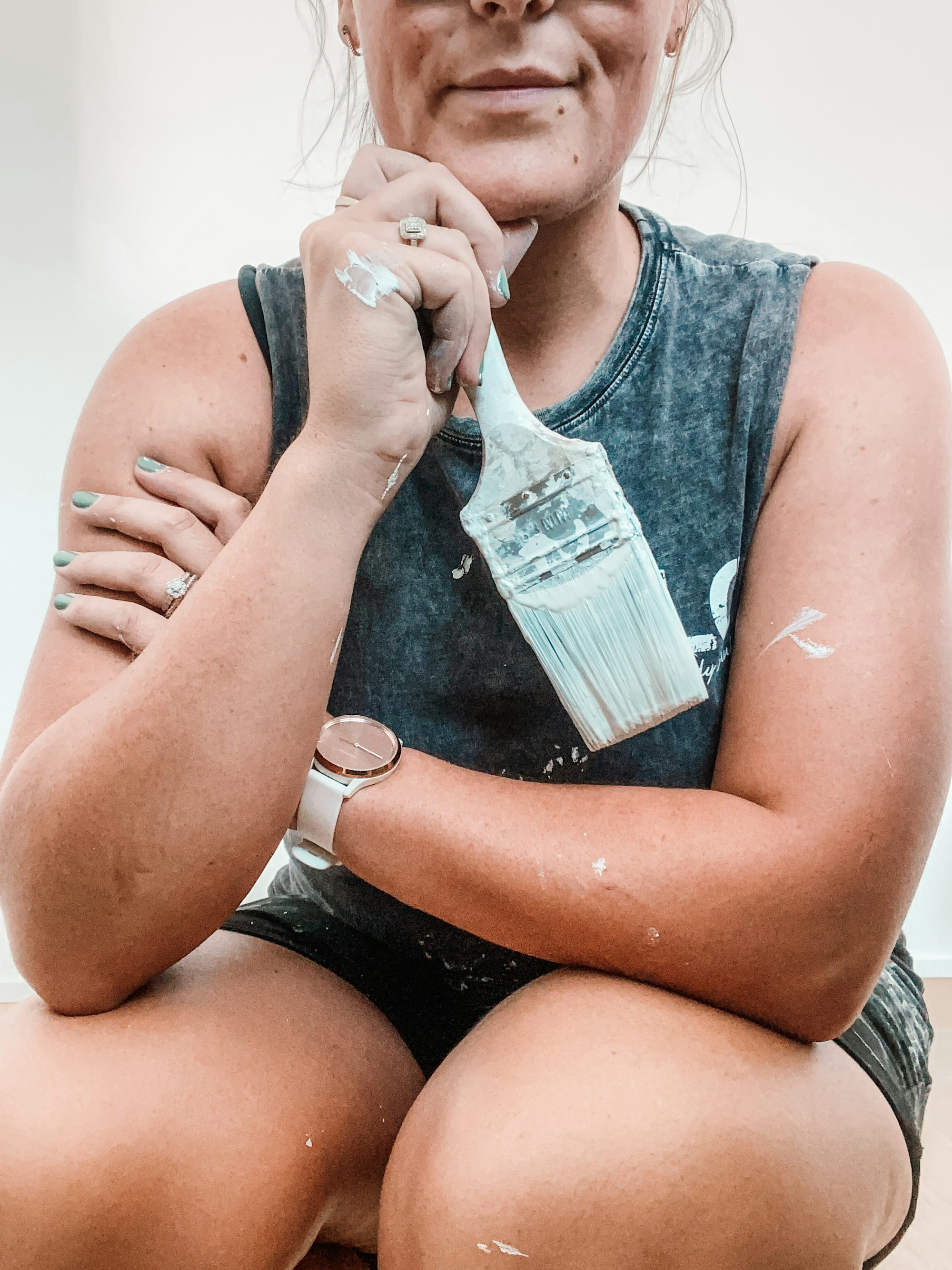
As a nation we're failing those houses. And our kids, as we encourage them to never be one of those guys who labors in the field, or comes home greasy, or whatever.
Just like we see now.
The ancients who preceded us thousands of years ago were, pound for pound, male and female, far stronger and more adept than today's finest Olympians (please see https://eastermichael.com/book/, The Comfort Crisis). While I may not agree with all Easter says, his research on what we used to be and where we are heading is impeccable. It's also informing some of my own way forward. The more I realize how little time I actually spend using my body, the more I understand modern day diseases of disuse like osteoporosis.
And I am increasingly motivated to find more physical labor, and everyday excuses to work this aging body, which is perfectly designed for hard labor, loves hard labor, and rewards hard labor with much better quality of life.
Hard-working, properly-fed and well-hydrated bodies don't deteriorate the same way that we typically do today. That's only one reason why I have torn into the blackberry bushes, cut and stacked heavy wood, and adore all aspects of horse care which make me sweat.
It's not just meditative. It's soothing, because the feeling of a body getting stronger is immensely gratifying at any age. Add to that the benefits that said strong body, which I do inhabit albeit I could always use more work, manages its way through pain and injury one hell of a lot better than those of us far too accustomed to soft lives and very small owies.
Harsher owies are part of life. Imagine the owies our ancestors had to manage, without bandaids or ERs or pain pills. You learned to deal or you ended up a meal.
People wrote extensively about how we lack resilience as a result of Covid. Nope. Covid just revealed the soft, mushy center that we already were, irrespective of any virus. Too many of us know little true hardship, which is part of what Easter writes about as he hikes the Alaskan landscape in search of caribou.
Which, after they kill an aging male, they have to butcher and carry back, like our ancestors. What he writes about that everyday, banal practice which today, people spend tens of thousands to replicate, perfectly underscores the point. You try hiking five miles, uphill, in the Alaskan tundra which is very uneven and unpredictable, with seventy pounds of caribou meat and the horns attached to your torso.
Hell, most folks can barely make it around the block.
Our ancestors had to do that regularly or die. Being in that kind of extremis gives you a lot to consider, which is part of what makes Easter's book worth reading.

From Clarke's article, above:
Secondly, there were many philosophers throughout history who, even if they were not manual workers themselves, have had positive views of such occupations. An example of a thinker who expressed such views was the Roman Stoic Musonius Rufus, who lived in the 1st century CE. Rufus argued that the best means of earning a living for a philosopher was farming. In response to someone hypothetically saying that an educated man should not work ‘like a peasant’ in the fields, Rufus replies:
Yes, that would be really too bad if working the land prevented him from the pursuit of philosophy or from helping others to its attainment. But since that is not so, pupils would seem to me rather benefitted by not meeting with their teacher in the city, nor listening to his formal lectures and discussions, but by seeing him at work in the fields demonstrating by his own labour the lessons which philosophy inculcates – that one should endure hardships and suffer the pains of labour with his own body rather than depend upon another for sustenance.
All our needs are served, as it were, when we exercise all our parts, from the spiritual to the philosophical to the emotional. When one part withers, it affects all the rest, which is why the ancients - and the wiser among us today- find such gratification in physical labor. We don't find it demeaning at all.
If anything, the sense of satisfaction gained from a garden planted or tended, a tree trimmed, for me a lot cleared of blackberries is deeply emotionally satisfying. There is much thought that happens during such times as the body works, which is just one reason why I have given the gym so many years.
It is far less about having the biggest biceps at 69, and far more about making sure that my body allows me the pleasure of being fully in life and far more able to deal with the inevitable and far bigger "owies" as I age, some of which I am juggling right now.
If you have kids and are urging them towards college, to avoid at all costs the ignominy of having a working class child, I would beg that you reconsider. My big brother, troubled by plenty of other issues, never finished high school. However he was famous for his carpentry, his finishing work, his wood working skills. He created remarkable rock climbing gear and made his own clothing. He was brilliant.
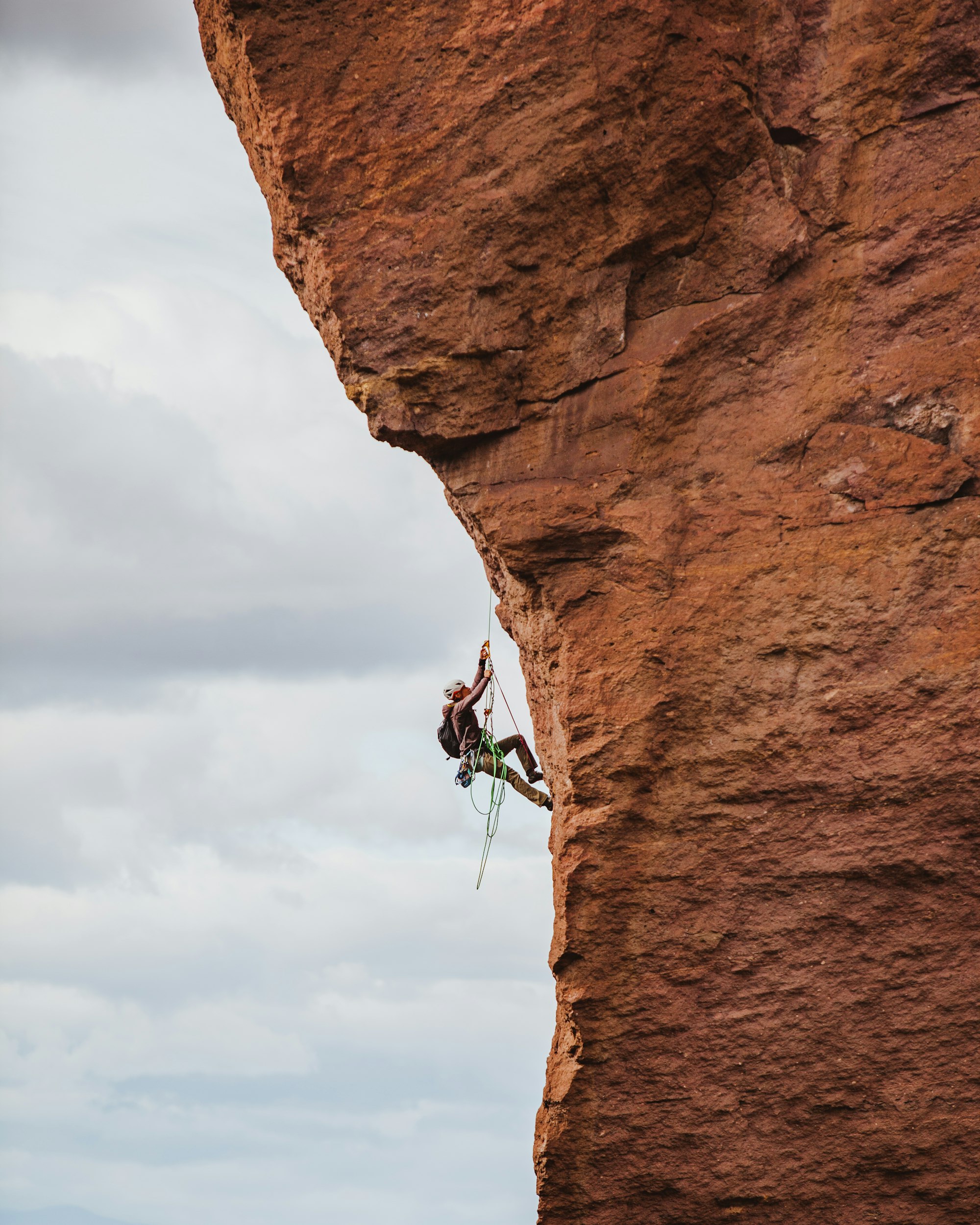
Despite my father's great sadness that Peter never made it to college, Pete didn't need college. His body of work, his poetry, musical compositions, his six books and much more speak far more to his creativity and brilliance than any degree. He also spent a great deal of time in the wild, working hard at his craft.
Not all people want to work in an office, a fact that we are watching right now, and not all dreams are fulfilled by chasing money. Perhaps the so-called Great Resignation is a fine opportunity to beg far larger questions about our relationship with the body, the land, nature and what labor gives us. Not just muscles, but perspective. Gratitude.
I can't speak for anyone else. All I know is that the older I get, the harder I need to work on all those interlocking parts. A strong body allows me to be in life longer and with a better quality of existence than if I allow myself to melt into a couch marshmallow. But that's just me.
And with that, I am going to go schlep wood for a while in the rain, and get deliciously dirty.
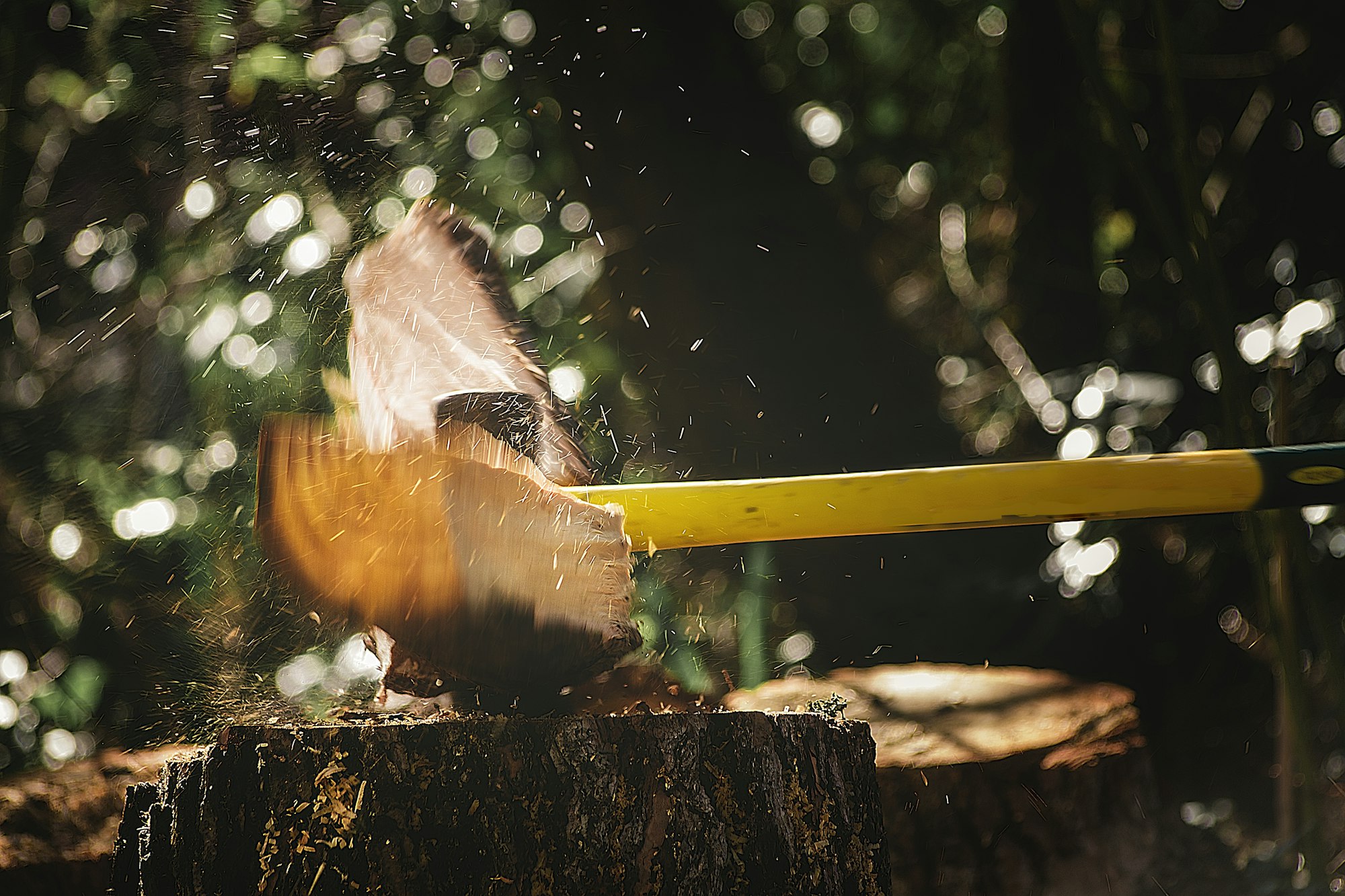

Comments powered by Talkyard.